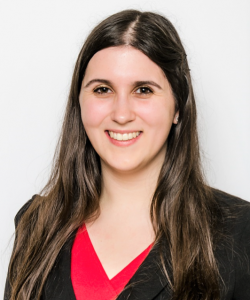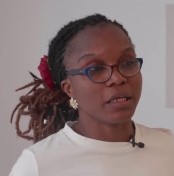The UK Data Service has put out a call for applications to become our third group of Data Impact Fellows. And this year, we are extending the scheme to include researchers and analysts in the charity sector, as well as in universities. Find out how to apply.
But what makes the fellowship scheme so interesting, so worthwhile and so successful?
So far, two groups of early career researchers have become #DataImpactFellows and they couldn’t be a more varied bunch of people if you tried.
Their research ranges from uncovering the effects of racism on mental health in ethnic minority people to exploring foodborne illness (‘food poisoning’), and from providing government ministers with ‘trade shock’ information related to Brexit to developing an intelligent transport analytical model for a coach company, taking in ageing, wellbeing, politics and education (amongst others) along the way.
All of our Impact Fellows work with data which is part of the UK Data Service collection, and all of them are keen to create real-world impact with their research. The Data Impact Fellows scheme gives a little extra support with this. Along the way, they have shared their experiences and ideas through networking with each other and through this blog.
How have our Data Impact Fellows benefited from being part of the programme? We asked some of them.
Collaboration

 Two of our Fellows, Claudia Zucca and Esmeralda Bon, had met before joining the scheme as they both work in related fields. Claudia’s work has been exploring the influence of the internet on voting behaviour, working for the VOTEADVICE network which has given her a chance to explore its impact. Meanwhile, Esmeralda has been investigating how politicians communicate with the public, using the British Election Study and the British Social Attitudes Survey.
Two of our Fellows, Claudia Zucca and Esmeralda Bon, had met before joining the scheme as they both work in related fields. Claudia’s work has been exploring the influence of the internet on voting behaviour, working for the VOTEADVICE network which has given her a chance to explore its impact. Meanwhile, Esmeralda has been investigating how politicians communicate with the public, using the British Election Study and the British Social Attitudes Survey.
Meeting again at our Data Impact Fellows event in April 2016, Claudia and Esmeralda have been looking at what collaboration means, not just in academic circles (Esmeralda recently gave evidence to the All-Parliamentary Group on Literacy as well as visiting Facebook HQ in London as part of external collaborations).
Esmeralda said:
For me, being a Data Impact Fellow means becoming part of a small network of like-minded peers who inspire and encourage me to collect, cite, and contribute data to the public.
Claudia added:
Being an Impact Fellow gives me the possibility to promote the idea of building knowledge from evidence: this is something I genuinely support since it is the only way to impact our future positively.
Growing old gracefully?
 The main focus of Bram Vanhoutte’s research has been the different ways in which people age, and in particular how ageing is influenced by individuals’ earlier lives. His research practice has concentrated on later life wellbeing: how to measure it, how it evolves over time and also how our social trajectories through life influence it. When he became a Data Impact Fellow, Bram was working on a new research project, The road to resilience: A comparative life course study, which examined the different ways in which people live through adverse events that define ageing in the public eye, such as loss of health, loss of partner and loss of wealth. His main data sources were the English Longitudinal Study of Ageing (ELSA) and its sister studies, the US Health and Retirement Study (HRS) and the Survey of Health and Retirement in Europe (SHARE).
The main focus of Bram Vanhoutte’s research has been the different ways in which people age, and in particular how ageing is influenced by individuals’ earlier lives. His research practice has concentrated on later life wellbeing: how to measure it, how it evolves over time and also how our social trajectories through life influence it. When he became a Data Impact Fellow, Bram was working on a new research project, The road to resilience: A comparative life course study, which examined the different ways in which people live through adverse events that define ageing in the public eye, such as loss of health, loss of partner and loss of wealth. His main data sources were the English Longitudinal Study of Ageing (ELSA) and its sister studies, the US Health and Retirement Study (HRS) and the Survey of Health and Retirement in Europe (SHARE).
Bram has taken time to consider the prerequisites for developing research impact, as well as the potential dark side of the need for impact.
Developing themes within this research, Bram, along with Neil (our impact manager), was fortunate to be able to work with a fantastic group of older people to create a ‘Living Library’ for the ESRC Festival of Social Science.
Bram said of his time as a Data Impact Fellow:
What I’ve enjoyed most about being a Fellow, next to the opportunity to reflect on the impact agenda, was our collaboration to set up a different, more diffuse kind of impact event. The Living Library at Manchester Central Library was aimed at dispelling some assumptions and myths about ageing by combining findings from my work with real life conversations with more experienced people.
Foodborne illness
 Rachel Oldroyd, combines research into food safety and health geography with teaching GIS & quantitative geography at the University of Leeds.
Rachel Oldroyd, combines research into food safety and health geography with teaching GIS & quantitative geography at the University of Leeds.
Rachel has come up with some innovative ways of ‘scraping’ data from TripAdvisor and social media to map unofficial reports of food poisoning, something which can have a real impact on people’s lives when eating out (or getting a quick chippy). Her thoughts on what effects her research have on the world are well worth a read, as a good example of the questions many Early Career Researchers face.
Rachel feels she’s gained a lot from being a Data Impact Fellow:
The Data Impact Fellowship Scheme is a fantastic facilitator for developing impactful activities, and one which I have hugely benefited from as an Early Career Researcher. A highlight for me was visiting Food Standards Australia New Zealand (FSANZ) in Canberra to discuss my research findings, a visit that wouldn’t have been possible without the grant money. The UK Data Service have been extremely supportive throughout the scheme and have helped extend the reach of my research through Twitter and via the UK Data Service data impact blog. I would highly recommend applying for the scheme!
Coaching
 Aishah Selamat’s research is being undertaken in collaboration with both the University of Bournemouth and County Coaches (UK) LLP (a company of Travelmanagement4u.com). Aishah’s research aims to develop an Intelligent Transportation Analytical Model for Small and Medium Enterprises. She not only works with data from the National Travel Survey and other open datasets. She has explored why a PhD researcher is like an entrepreneur, as well as broadening her skills at a Data Science boot camp.
Aishah Selamat’s research is being undertaken in collaboration with both the University of Bournemouth and County Coaches (UK) LLP (a company of Travelmanagement4u.com). Aishah’s research aims to develop an Intelligent Transportation Analytical Model for Small and Medium Enterprises. She not only works with data from the National Travel Survey and other open datasets. She has explored why a PhD researcher is like an entrepreneur, as well as broadening her skills at a Data Science boot camp.
Aishah said:
The UK Data Service fellowship award has not only enhanced my research contribution but most importantly, provided me the platform and opportunity to engage with business organisations about the need to explore and tap into Open Data resources.
Global and rural
 When Anthonia Ijeoma Onyeahialam became a Data Impact Fellow, she was a Postdoctoral Research Associate (GIS and Geovisualisation) on the GLOBAL-RURAL Project, Department of Geography and Earth Sciences, Aberystwyth University. She is now working on another project as an Earth Observation and GIS Scientist on the Geographical Data & Earth Observation for Monitoring (GEOM) project, a partnership between Aberystwyth University and QinetiQ, funded under the Research and Innovation priority within the European Regional Development Fund (ERDF) programme.
When Anthonia Ijeoma Onyeahialam became a Data Impact Fellow, she was a Postdoctoral Research Associate (GIS and Geovisualisation) on the GLOBAL-RURAL Project, Department of Geography and Earth Sciences, Aberystwyth University. She is now working on another project as an Earth Observation and GIS Scientist on the Geographical Data & Earth Observation for Monitoring (GEOM) project, a partnership between Aberystwyth University and QinetiQ, funded under the Research and Innovation priority within the European Regional Development Fund (ERDF) programme.
Anthonia’s research covers a number of globalisation themes – migration, trade and economy, land and capital, tourism and culture, global infrastructure and communications, civil society and social movements and global challenges at a global scale, and their relation to case study sites in Wales, New Zealand, China, Brazil, Sweden, Australia, Canada, Liberia, Italy and Ireland. She uses data from multiple sources., including UK Data Service international data, Census data made available by the UK Data Service such as integrated census microdata and aggregate data; as well as international and national data catalogues combined with fieldwork data.
She also uses GIS to visualise evidence and tell stories, combining the earlier mentioned quantitative data with detailed qualitative datasets from research in case study sites to construct map based multimedia rich narratives using text, quotes, intentional maps, images/photographs, audio and videos files presented on a story-telling platform.
Anthonia said:
Being a Data Impact Fellow has given me the leverage to appreciate the role of different data types and sources in decision making processes. I feel more confident talking about data as a resource and I am taking this with me into my next job role where I am hoping to encourage businesses to see and use data differently in ways that will maximise their business output to eventually create more job opportunities to boost the economy of Mid Wales.
The UK Data service welcomes applicants to become one of the third wave of Data Impact Fellows.
The programme has been broadened to include analysts and research in UK-registered charities as well as early career academic researchers.
To find out more about the scheme and how to apply, please visit our information pages.
